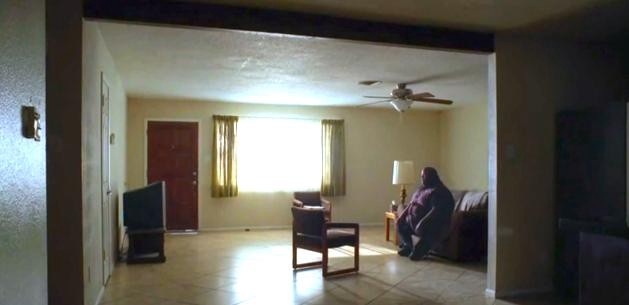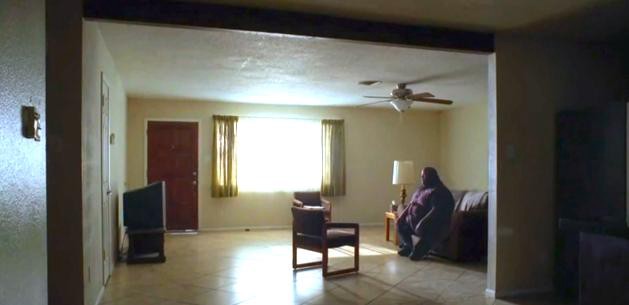Five New Yorker Writers Explain the Fate of Huell from Breaking Bad


Five days have passed since the Breaking Bad series finale, and one question lingers: What happened to Huell? The bodyguard was last seen in a safe house, waiting for his rescue. Here, we imagine five New Yorker writers’ theories on his fate.
Patricia Marx
Oh, to be a person of such stature to require a person of even more commanding stature: a bodyguard! A friend of mine who teaches Tumblr to babies (DUMBLO, $75/class), had recently come into the way of some death threats; I called him to inquire. “One thing that’s great about teaching classes for babies,” he said, “is that your bodyguards don’t need to be big.” They also don’t need to be pricey: in New York City, the citizens who come accompanied with besuited muscle are more often of the Bieber or crook variety, but anyone of relatively modest means may hire one―personal security services start at just $25 an hour.
I started by calling event security ($45/hour). “What sort of event?” they asked. I looked at my TV screen, where the “To’hajiilee” episode of Breaking Bad was paused, like Huell, at the safe house. “Never mind,” I said. I dialed up an unarmed driver ($350/day), but then hung up in favor of an armed driver ($500/day) to take me about my errands. (Huell’s guns were more of the bicep variety, but I wanted to get my money’s worth.) My armed driver showed up promptly at 8 A.M. “Hello, Huell,” I told him. He didn’t smile. Together, in his Lincoln Continental, we picked up coffee ($8 for my cold-brew and Huell’s almond-milk latte), dry-cleaning ($20, but the technology is “green”), a chopped salad ($11) and some Chipotle ($8), an activewear fleece for the changing seasons ($95), and a goldendoodle puppy from a boutique on Christopher St ($600). Then he dropped me off at home. “You can go back to your safe house now, Huell,” I said.

Malcolm Gladwell
The question we must consider is this: within the personal myth of Huell, does the pinnacle actually lie within the safe house? Do the central elements of professional achievement―natural ability, quixotic opportunity, and 10,000 hours of practice―lead, in Huell’s case, to a final redefinition of success in which he guards nothing but himself and the hours?
In bodyguarding, unlike in neurosurgery, “naturals” can in fact be said to exist. Only a tiny fraction of the general population possesses the swollen, immovable lumpiness of a Huell, and within this industry, a man too rotund to excel at other highly physical pursuits may rule the professional roost. This physiological self-sorting is, of course, not specific to bodyguards: for example, professional baseball players possess, on average, a level of visual acuity commonly found in only barn owls and my own third eye, which is to say, my instinct in an intellectual sense, which is clearer than virtually any other that exists in the world.
Still, no “natural” makes it alone, or without practice, or free from the cultural legacies of history. Huell’s achievement as a bodyguard to Saul Goodman was shaped by a pattern of extreme action mixed with periods of rigorous inaction (the latter an excellent preparation for this quasi-retirement). Most likely, Huell had already reached his professional peak by the time he was forced into hiding on false premises. It is a mistake to assume that he would be better off released from the safe house. Let him remain there, where he will always be elite.

John McPhee
As far as I know, my father never lived in a safe house. Across an open channel from the Restigouche River lies the house around which I often rode my bike as a child, feeling as safe as a golf ball nested whitely in its hole, or a small fish of which a portion―the shimmering dorsal fin, the iridescent finlet, the sharply edged pectoral fin, the humble anal fin, the tail, the adipose appendage that always brought to mind certain passages in Emerson―had been ensnared by a cunning angler. Sometimes in moments of mental repose, when time passes weightlessly like the an effervescent sun shower on the banks of the Baie de Chaleur, you may find yourself bicycling with a fixed stare on the gritty path before you, propulsive yet thirsty for nothing, in the state of active contentment I most associate with my father as well as certain passages in Emerson.
In uncounted millions, we are snatched, greedily, by the teeth―the mandibular lateral incisor, the maxillary second premolar, the awful selenodont, the shovel-shaped incisors whispering silently of the grave―of our fates, and like Huell, thrust into a house which is not safe, but may become so through the careful contemplation of the sun as it plays lightly upon the fading brick of old walls. Safe houses have contained many country sons; on this day, Huell is one of them.

Emily Nussbaum
In a blog post a few days ago, I made clear my lingering dissatisfaction about Breaking Bad’s finale: that I found its most satisfying elements too obvious, its most intriguing possibilities too arcane. Still, I’ve been unable to avoid thinking about it, and the single loose end left dangling by the creators of a show whose entire wrap-up signaled an unquestionable intention to satisfy devotees whose previous passions had ended too floppily (Sopranos, Lost, we subtweet this series at you) to warrant being disappointed, after all those marathons, again.
Huell Babineaux: why leave him like that, the last prisoner to Heisenberg’s machinations? It is not lost on us that Huell is one of the only black faces in the investigation of “purity” that defined Breaking Bad. Walter is White. Huell is not. Huell, who subtly but unerringly performed a social Otherness at every opportunity (the scene where Marie is forced to visualize Huell’s loose stool in her toilet! his gentle, giant, ghettoized form at peace on the pallet stacked fatly with bills!), is ultimately the only character whose fate is left unresolved.
Readers, you may be losing patience, but hear me out: could Huell be the Hurley to Breaking Bad’s island of Sophoclean tragedy? Could the entire finale have been not just a fugue in Walter White’s frozen skull, but the whole series a fever-dream of a man whose life had been structured around white-washed narratives of dominance and imprisonment? Huell is large enough to contain multitudes. Could he have contained five seasons too?

James Wood
A few days after the events of September 11, Huell Babineaux collapsed in his shower and cried. At least, we can only assume so. A certain bone-dry, murderous male consciousness looms large over the meth-dazzled desert of Breaking Bad, and within it, Babineaux represents, perhaps more than any other character, the feminized figure of reader and viewer: the person who is compelled even as he attempts to do the compelling, the person to whom everything is done. Line up the male characters and you’ll find Babineaux the most physically powerful yet the least prototypically male. Even when collapsing his great hulk onto Walter White’s millions, he explains himself apologetically, as if he were fishwife to his diminutive redhead partner. On his back, as jellied and trapezoidal as a sea-creature:
I gotta do it, man.
But Huell’s choices are as fictional as yours or mine. His loss of agency is all the more pungent for the fact that it serves as a structural mirror to our own elegiac delusion in the current intellectual climate. Prickled outward by stimulus, we seek whatever will compel us to turn inwards. We crave hysteria and apocalypse, knowing that only a toxic event of DeLilloan magnitude could absolve us of the responsibility to act. It ought to be harder, somehow, for Huell to give up his days among society. But it’s not. In fact, admitting that Huell is our analogue―and I exaggerate slightly, but what computer screen does not function as the door to a safe house?―makes possible this new genre of literature, in which we can only do small things. We take the ricin, pocket the pot. We reflect, however helplessly, the tiny gestures that characterize our age.